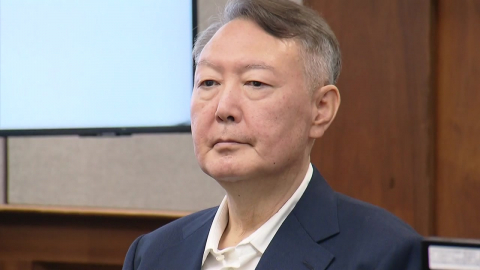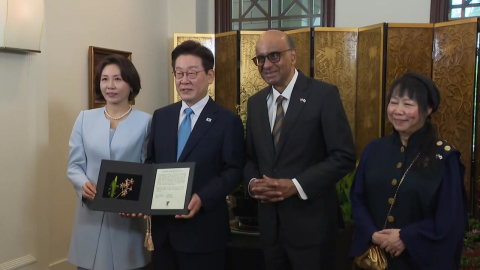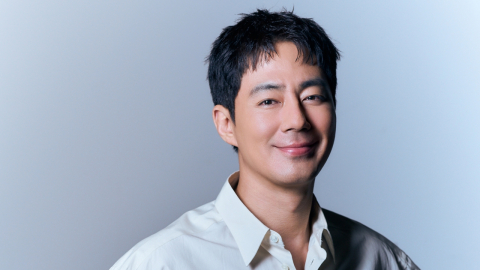-
이란 보복에 수시로 울리는 미사일 경보…중동 전선 확대재생

- 친이란 '저항의 축' 일단 가세…힘 잃은 '시아파 벨트'로 반격?
- '실패한 복수'가 바꾼 전략… 이란의 '독한 소모전'?
- 중국, 미국 맹비난…"주권국 지도자 살해하고 성과로 자랑"
-
두바이 등 허브공항 마비…한국인들도 발 묶여 '비상'재생

- [현장영상+] "재외국민 보호대책본부 설치…각 공관 총력 대응"
- 기후에너지부 "이란 공습 뒤 현재까지 전력 수급 영향 없어"
- 외교부 "중동 상황 심각한 우려…평화 회복 희망"
실시간 이슈
에디터 추천뉴스
-
재생
 연휴 끝자락 폭설…산불 걱정은 '뚝'
연휴 끝자락 폭설…산불 걱정은 '뚝' -
재생
![미국 공격 알고 있었나? 외국인들 아찔한 탈출에 코스피 '비상' [Y녹취록]](https://image.ytn.co.kr/general/jpg/2026/0302/202603021759127309_h.jpg) 미국 공격 알고 있었나? 외국인들 아찔한 탈출에 코스피 '비상' [Y녹취록]
미국 공격 알고 있었나? 외국인들 아찔한 탈출에 코스피 '비상' [Y녹취록] -
재생
 중동 리스크에 환율 비상…주식 개장 앞두고 '긴장'
중동 리스크에 환율 비상…주식 개장 앞두고 '긴장' -
재생
 "몰랐다" vs "먼저 요구"…구속 여부 갈릴까?
"몰랐다" vs "먼저 요구"…구속 여부 갈릴까? -
재생
 이번 주 내란 항소심 본격화…법정 2라운드 돌입
이번 주 내란 항소심 본격화…법정 2라운드 돌입 -
재생
 서울시 준하는 지위 '전남광주특별시'…통합시청은 어디로?
서울시 준하는 지위 '전남광주특별시'…통합시청은 어디로? -
재생
 "항생제 내성률 OECD 1.7배…종합병원 170곳 모니터링"
"항생제 내성률 OECD 1.7배…종합병원 170곳 모니터링" -
재생
 새 학기 앞두고 콜록?…소아·청소년 독감 주의
새 학기 앞두고 콜록?…소아·청소년 독감 주의 -
재생
 늘어나는 무연고 장례…가족 있어도 "장례비 부담"
늘어나는 무연고 장례…가족 있어도 "장례비 부담" -
재생
 "정장형 교복 없애고 종류 줄인다"…가격 담합 철퇴
"정장형 교복 없애고 종류 줄인다"…가격 담합 철퇴 -
재생
 '삼겹살 데이' 맞아 대규모 할인…"장바구니 시름 덜어요"
'삼겹살 데이' 맞아 대규모 할인…"장바구니 시름 덜어요" -
재생
 "해마다 앞당겨지는 꽃시계"…올해도 최대 8일 빨라
"해마다 앞당겨지는 꽃시계"…올해도 최대 8일 빨라
많이 본 뉴스
- 1 내부 폭로 터진 테슬라코리아...인력 줄퇴사에 차량 인도 '초비상' [지금이뉴스]
- 2 이란 보복에 수시로 울리는 미사일 경보...중동 전선 확대
- 3 [자막뉴스] 3월 시작부터 돌변...'최대 40cm' 폭설 예보까지
- 4 이미 미국 손바닥에 있었던 이란...테헤란 심장부 한방에 '괴멸' [지금이뉴스]
- 5 미국 공격 알고 있었나? 외국인들 아찔한 탈출에 코스피 '비상' [Y녹취록]
- 6 [단독] 여객기에서 다른 승객 머리 폭행...상공에서 응급처치
- 7 "정장형 교복 없애고 종류 줄인다"...가격 담합 철퇴
- 8 [속보] 쿠웨이트서 미 F-15 3대 추락..."방공망 오발"
- 9 [날씨] 내일 정월 대보름...낮부터 기온 올라 일교차 '주의'
- 10 정월 대보름에 '붉은 달' 뜬다...36년 만의 우주쇼








![[Y터뷰] 홍종현 "안 해본 캐릭터에 대한 갈증 늘 있죠…군인 역할도 꿈꿔요"](https://image.ytn.co.kr/general/jpg/2026/0227/202602270800017447_h.jpg)






